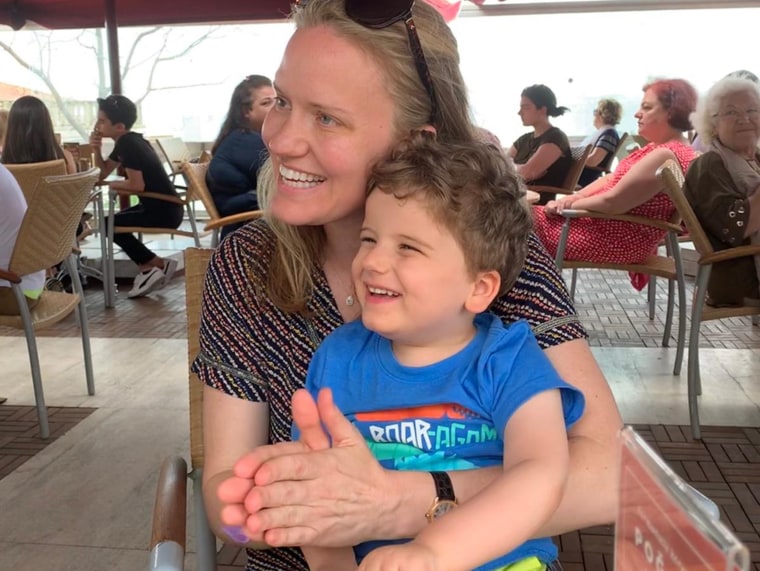I’ve been thinking a lot about a photo recently. It was taken in southern Turkey after the horrific earthquakes left the area devastated. In the photo, a father sits next to a pile of rubble that contains the body of his daughter who had been killed. He is holding her hand. The rest of her body is trapped under debris. It’s a haunting, gut-wrenching image.
I kept going back to look at it. It resonated with me and touched on so many feelings that are constantly swirling in my head these days. I’m not comparing my situation to his; our losses are clearly different. Last August, our son Henry passed away from complications brought on by a neurological condition called Rett Syndrome, which he valiantly fought for almost seven years.
When I look at that photo of the dad in Turkey, I am reminded that the innate desire to have physical contact with your child is universal from the moment they are born — and if they tragically die before you do, when they are dead as well.
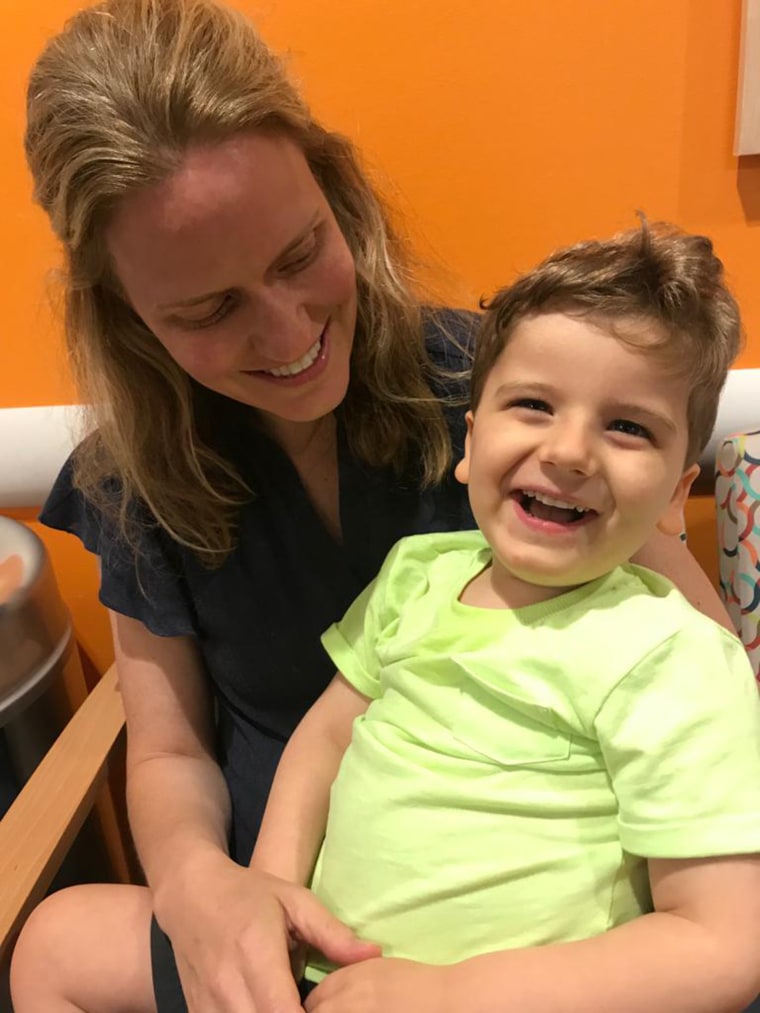
The photo brought me back to sitting with our son Henry’s body after he died. As long as he remained a physical presence on this Earth, I wanted to be with him. We sat with him in our home for hours. Changed his clothes. It was summer. I put shorts on him, and a T-shirt out of habit. I chose one of his softest, coziest ones.
That evening when the people from the funeral home came to get his body, I carried him to the car. It was the last time I would ever carry my beautiful Henry. How many times had I carried him in his life? Hundreds? Thousands? He was almost like an appendage to me; we were physically intertwined due to his disability and him needing me to move him around, to be his legs.
My crowning achievement of this was at a birthday party he went to at an indoor play facility. We almost didn’t go, as I thought, “How the hell am I going to do this?” But then I thought, “How can I deprive him of the chance to go to a birthday party?” I carried him myself through the maze; his smiles were the best thank you I have ever received.
Ever since Henry was born, I had clung to routine and schedules to feel a sense of control over a situation that really couldn’t be controlled. And then he died, and so much of my routine went out the window. But without even realizing what I was doing, I created one last routine for us.
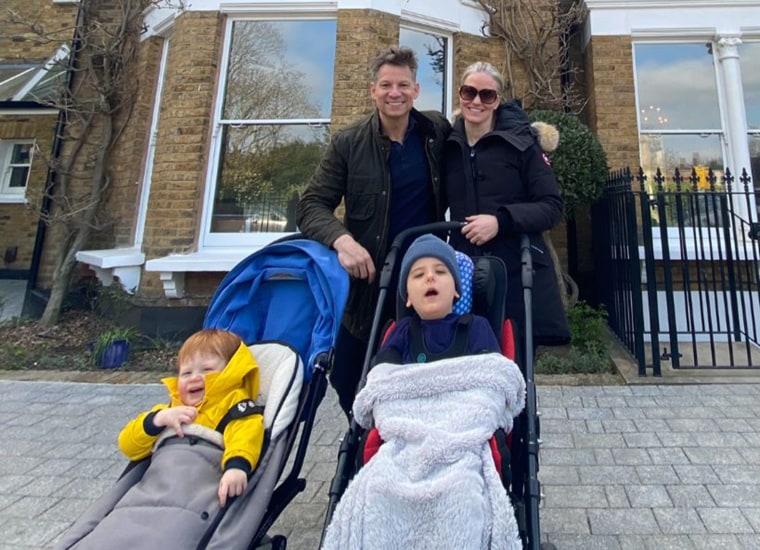
The people who worked at the funeral home — two of the kindest people I’ve ever met — said I could come see Henry’s body in the days leading up to the cremation. I went to sit with him every day for a week. I went at 9 a.m. and 5 p.m.
They would have him ready for me, and I’d go into the room and cry, stroke his hair and face and rest my head next to his. I brought a different assortment of books and toys each time. I’d push the buttons on the toys and listen to the sounds, which I had heard so many times when he had pushed them. Henry loved music. I sang some of his favorite songs and played others on my phone. “Who Let the Dogs Out” and a variety of Katy Perry and Lizzo songs felt disjointed … and at the same time, perfectly right in the little room where I sat with him.
That period of my life is a blur, but those hours with Henry’s body are vivid in my mind. I would wake up feeling anxious to see him. Longing for him. Each time I went I would stay for about an hour, then leave the room and head to the front door of the funeral home before turning back for one last goodbye. It was so hard to leave, but we also have a younger son, Theo, who needed me, and he was in the forefront of my mind as well.
A few friends asked to come with me one day. We were all crying. They took turns stroking his gorgeous hair (Henry had the best hair) and speaking or singing to him. We hugged. Then someone said something, which I can’t recall, but it was funny, and despite ourselves, we all laughed. It was so awful, surreal and beautiful at the same time. The human spirit is truly amazing. I like to think that Henry was enjoying watching all of us crying, laughing and talking together surrounding his body. He always liked to be in the mix.
Grief makes you do some seemingly weird things. Or maybe grief makes us behave in a way that is our truest self.
My husband, Richard, was a bit hesitant about what I was doing at first. This kind of grief is unlike anything either of us had felt before. There’s no roadmap. He didn’t know if it would cause me more pain to have this ritual that I had created, but he came with me. He realized the value in having this time to do the impossible: attempt to say goodbye to Henry.
One time we were there together, and I stepped out of the room for a bit. When I came back, I heard Richard talking as I was about to open the door. I didn’t go in. I let him have time alone with Henry’s body. I didn’t ask him what he said; I didn’t have to.
Grief makes you do some seemingly weird things. Or maybe grief makes us behave in a way that is our truest self, because every impulse I had felt completely organic.
As I sat with Henry, I noticed that his nose was running. I hadn’t had reason to think about this before, but of course bodies leak fluid. There’s something I never thought I would write in an essay, but here we are. I would wipe Henry’s nose while I sat with his body, and I kept some of the tissues. They are now in a drawer in my dresser. Will I keep them forever? I don’t know. But any part of Henry in any form — be it hair, teeth, runny nose tissues — is precious right now.
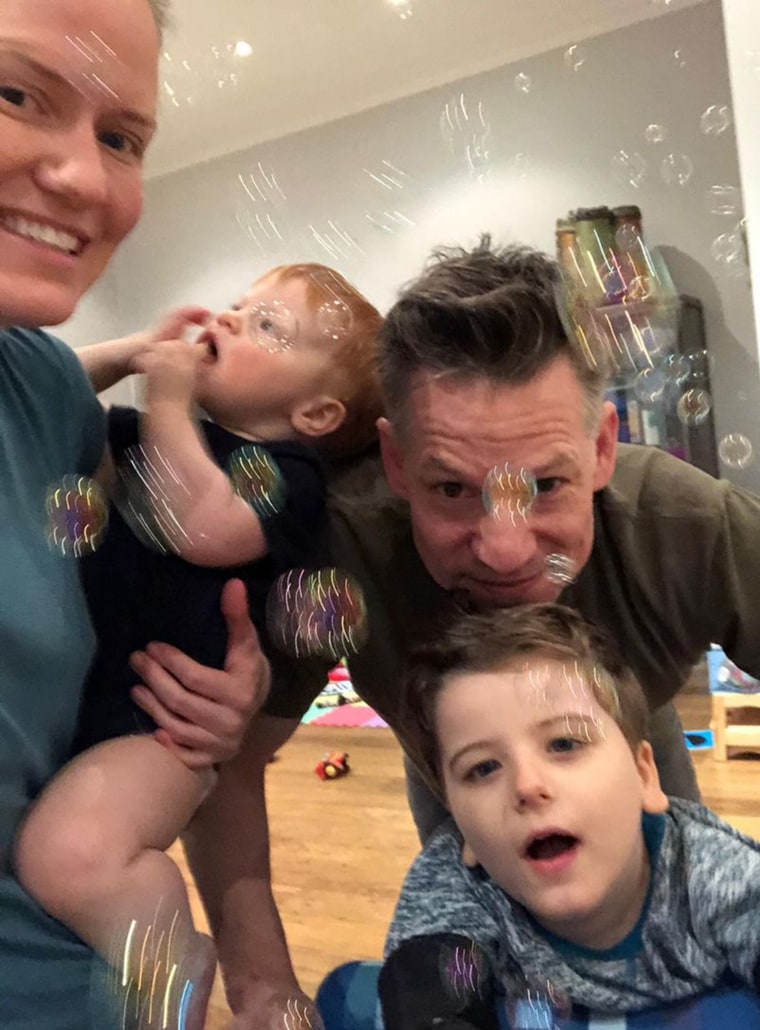
Shortly after Henry passed, I listened to an excellent Ted Talk by author and podcaster Nora McInerny called “We don’t move on from grief. We move forward with it.” At one point, she shares that she licked her hands clean after scattering her husband’s ashes, because she was afraid of losing more than she had already.
While I didn’t do that with Henry’s ashes, I understood her impulse completely. We scattered some of the ashes at a tree in a park that Henry loved. For months afterward, I could see remnants of ashes when I visited. It had been a very dry summer, and the ground was hard. I didn’t expect to see them for that long, and it was comforting. “He’s here,” I thought.
Six months later, I’ve now come to realize that he’s everywhere. Wherever I go and whatever I do, he’s with me.
Six months later, I’ve now come to realize that he’s everywhere. Wherever I go and whatever I do, he’s with me.
The funeral director said I would know when it was time to say goodbye and give the go-ahead for the cremation. She was right. I thought I would never be able to let his body go, but there came a time when it was clear.
The day of the cremation, we went multiple times to sit with him. At one point, we left for a little while to get a coffee. I remember feeling like an alien mingling with these people who were going about their everyday lives while we were preparing to take our son to be cremated.
Then we drove to the cemetery in complete silence, his oddly lovely rainbow-colored casket made of woven willow in between us in the back of the hearse. We sat in the church for 45 minutes. Just us. It felt like five minutes. Then it was time to leave the crematorium and walk away from his body — this body I knew so well, loved more than life itself and fought to keep alive for years.
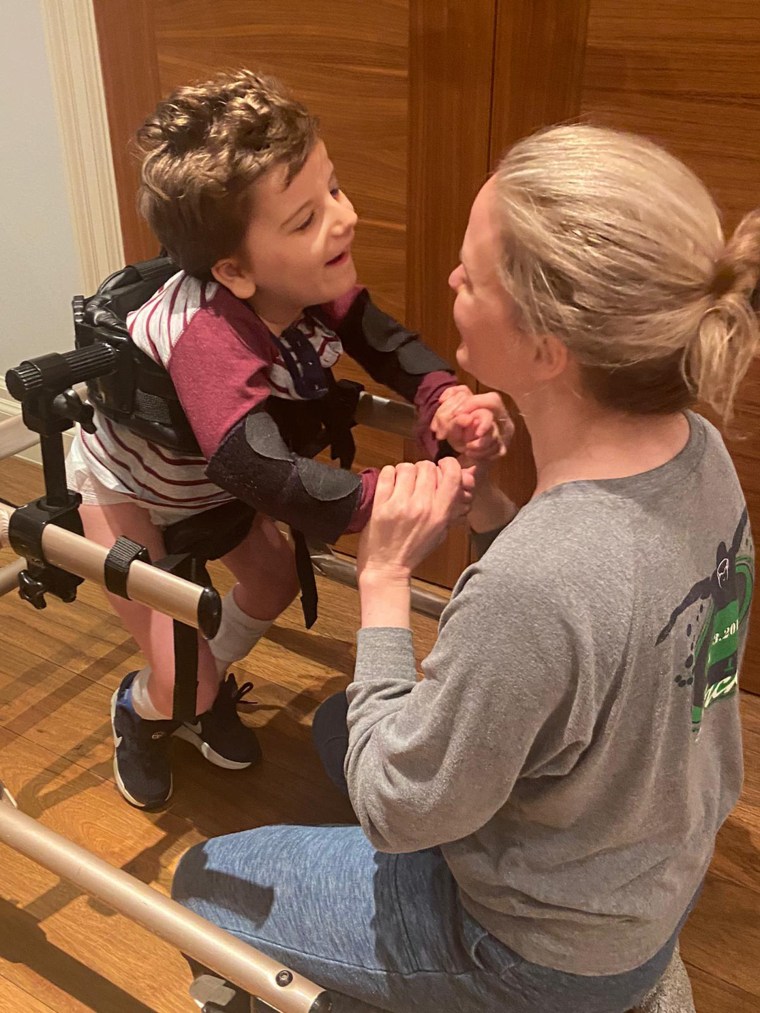
I am thankful to have had that week. I know not every grieving person has the ability to do this, and not everyone wants or needs to. It was surreal, heartbreaking, gut-wrenching … and also filled with so much love. There’s just so much love, and that’s what has gotten me through.
I keep thinking about the father and his daughter in Turkey — and the love that was radiating out of that photo. I know that kind of love, and I know that it never fades, never goes away. There’s a saying: Grief is the price we pay for love.
Would I go back and do every second over again with Henry, knowing that there would be this much pain at the end? Yes. A million times, yes.
